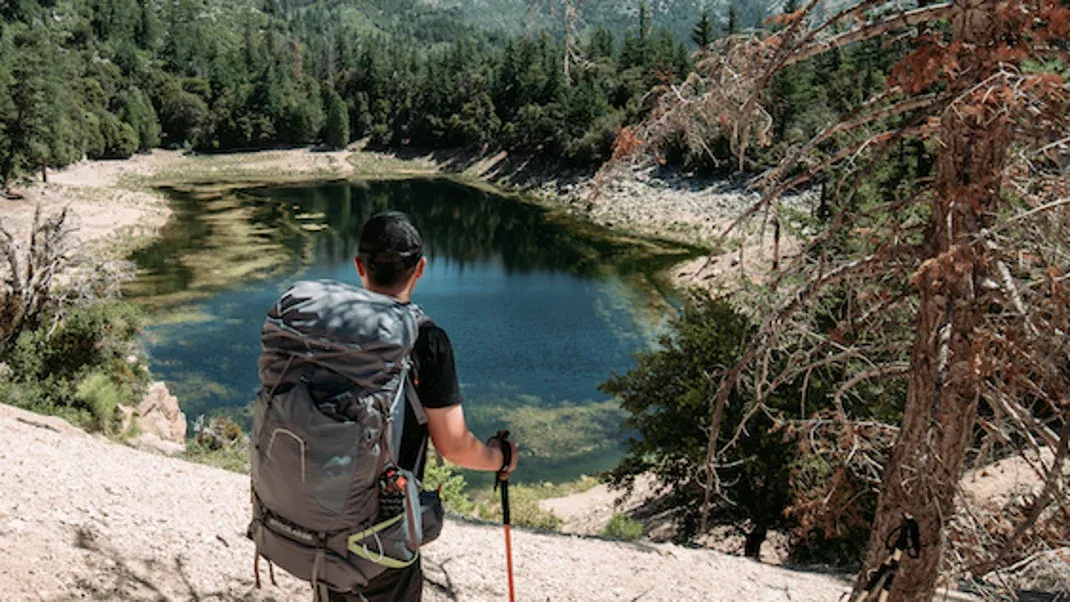Planning Your First Thru-Hike? Prep for Mileage or Risk Injury.
Planning your first thru-hike can be an exciting and challenging endeavor. One of the most important aspects to consider is preparing for the mileage you will be covering each day. It is essential to gradually increase your mileage in the months leading up to your hike to avoid risking injury. Proper training and conditioning of your body will help you build the endurance and strength needed to conquer the long distances. Additionally, investing in quality gear and understanding the terrain and weather conditions of the trail will also contribute to a successful and enjoyable thru-hike experience.

Planning your first thru-hike can be an exciting and daunting experience. Whether you're tackling the Appalachian Trail, Pacific Crest Trail, or another long-distance trek, there are a multitude of factors to consider before embarking on this epic adventure. One of the most important aspects to consider is how to properly prepare for the physical demands of a thru-hike.
One of the key considerations when planning your first thru-hike is how to prep for the mileage you will be covering each day. Thru-hiking involves walking long distances day after day, often carrying a heavy pack, which can put a significant amount of strain on your body. In order to mitigate the risk of injury and ensure that you are physically prepared for the journey ahead, it's essential to gradually build up your mileage and endurance in the months leading up to your thru-hike.
The first step in preparing for the mileage of a thru-hike is to create a training plan that gradually increases the distance you are walking each day. This can involve going on regular hikes in your local area, gradually increasing the length and difficulty of the trails you tackle. It's also important to incorporate strength training and cross-training activities into your routine to build the necessary muscle strength and endurance for a thru-hike.
In addition to physical training, it's important to pay attention to your gear and pack weight. Carrying a heavy pack can significantly increase the strain on your body, so it's important to carefully consider the items you are bringing and to pack as lightly as possible. Invest in lightweight, high-quality gear, and consider using ultralight backpacking techniques to minimize the weight of your pack.
Another important aspect of prepping for the mileage of a thru-hike is to pay attention to your nutrition and hydration. Fueling your body with the right nutrients and staying properly hydrated is essential for maintaining your energy and endurance on the trail. Consider working with a nutritionist or a knowledgeable hiking professional to develop a meal plan that will provide you with the necessary energy and nutrients for your thru-hike.
While prepping for the mileage of a thru-hike is essential for avoiding injury and ensuring that you are physically prepared for the journey ahead, it's also important to be mindful of the risk of injury. Thru-hiking puts a significant amount of strain on your body, and the risk of injury is a real concern for hikers. In order to minimize this risk, it's important to listen to your body and to take steps to prevent injury before it occurs.
One of the most important ways to prevent injury on a thru-hike is to ensure that you have the proper footwear and to break in your hiking boots well in advance of your trip. Ill-fitting or poorly broken-in boots can lead to blisters, foot pain, and other foot-related injuries, so it's essential to invest in high-quality hiking boots and to spend plenty of time breaking them in before hitting the trail.
In addition to proper footwear, it's important to pay attention to your body and to take steps to prevent overuse injuries. This can involve incorporating rest days into your training plan, as well as taking the time to stretch and foam roll your muscles to prevent tightness and soreness. It's also important to pay attention to any aches or pains that arise during your training and to address them promptly to prevent them from turning into more serious injuries.
Finally, it's essential to be mindful of the mental and emotional strain of a thru-hike, as well as the risk of burnout. Thru-hiking is a physically and mentally demanding endeavor, and it's important to take steps to maintain your mental and emotional well-being throughout your journey. This can involve practicing mindfulness and meditation, as well as taking the time to connect with nature and enjoy the beauty of the trail.
In conclusion, planning your first thru-hike involves a significant amount of physical preparation and attention to detail. By focusing on prepping for the mileage of the hike and minimizing the risk of injury, you can ensure that you are physically prepared for the journey ahead. It's also important to be mindful of the mental and emotional strain of a thru-hike and to take steps to maintain your well-being throughout your journey. With careful planning and preparation, you can set yourself up for a successful and enjoyable thru-hike experience.






